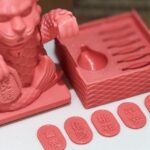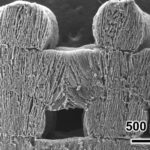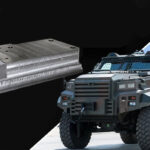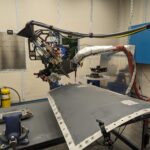Ignoring all warnings from Hollywood from the last 4 decades, US Army engineers and scientists have turned to AI to assist with the production of 3D printed missile components.
Data-driven Manufacturing
Specifically, the US Army Research Laboratory (ARL) has awarded a contract to machine learning company Senvol, to assist with data-driven manufacturing of missile components. The collaboration will also include Lockheed Martin, EWI, and Pilgrim Consulting.
The machine learning software is called SenvolML, and it specializes in data driven machine learning for analyzing the relationships between 3D printing parameters and material performance.
The machine learning part looks at the relationship between four parameters, which are:
- process parameters
- process signatures
- material properties
- mechanical performance
By analyzing past data sets, the software applies ML to help optimize future work based on previous performances.
With this software, military engineers are able to rapidly optimize AM parameters, predict material properties, as well as support the qualification of AM materials and processes, which is all important in defense related projects.
“Despite the potential that Additive Manufacturing offers, the rate of adoption is very slow due to the high cost and time associated with the design, qualification, and certification of additively manufactured parts,” said Stephanie Koch, Advanced Manufacturing, Materials, and Processes Program Manager at ARL.
“We are very encouraged with Senvol’s approach, and look forward to seeing how we can leverage machine learning to improve processes.”
Why Machine Learning?
As mentioned, qualification of parts, materials and processes in the defence realm can be costly and time consuming. This is in part related to the sheer number of repeated testing a product or process must undergo to reach product maturity required to be declared as qualified. By applying machine learning, it is hoped that future material and product qualification processes can be reduced.
“Senvol will implement data-driven machine learning technology for the US Army that will substantially reduce the cost of material and part qualification,” said Annie Wang, president of Senvol.
The significant reduction in cost and the increase in speed will allow the army to support warfighter readiness by unlocking the full transformative potential that Additive Manufacturing offers. Annie Wang, president of Senvol.
Missile Components
The process-agnostic software will ultimately be employed in the manufacture of missile components for qualification.
“I’m very pleased to be supporting Senvol on this programme,” said William E Frazier, president of Pilgrim Consulting.
“In particular, I’m looking forward to the demonstration. The plan is to fabricate a missile part and evaluate how close the actual performance requirements are compared to those predicted by the Senvol ML software, and to ultimately determine whether or not the part should be qualified.”
Being a military project, details of the exact process are scarce, but we can assume they are interested in metal components for now, as they are the highest value and would likely benefit from some machine learning, quality control magic the most.












